31 Congenital Heart Disease
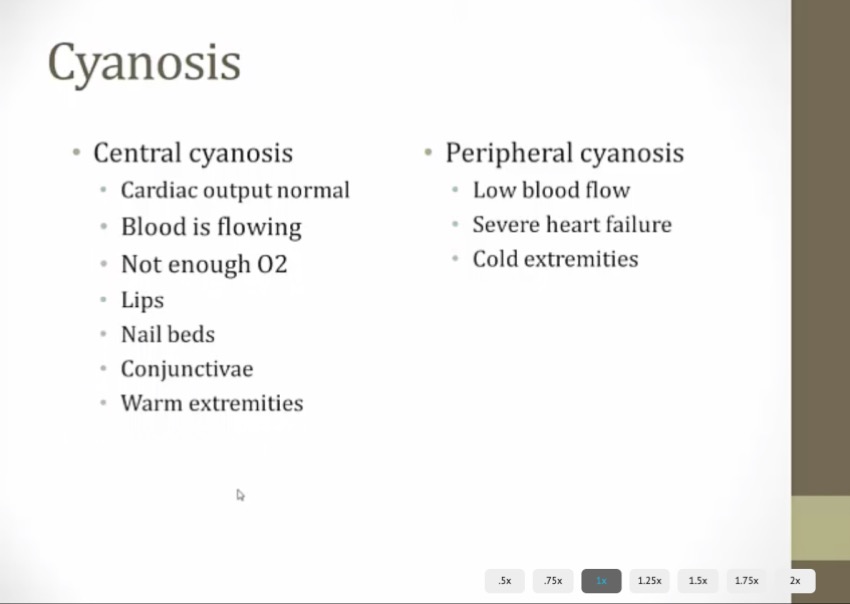
- central cyanosis: seen in congenital heart disease in babies
- warm extremities: perfused with warm blood, just not enough O2
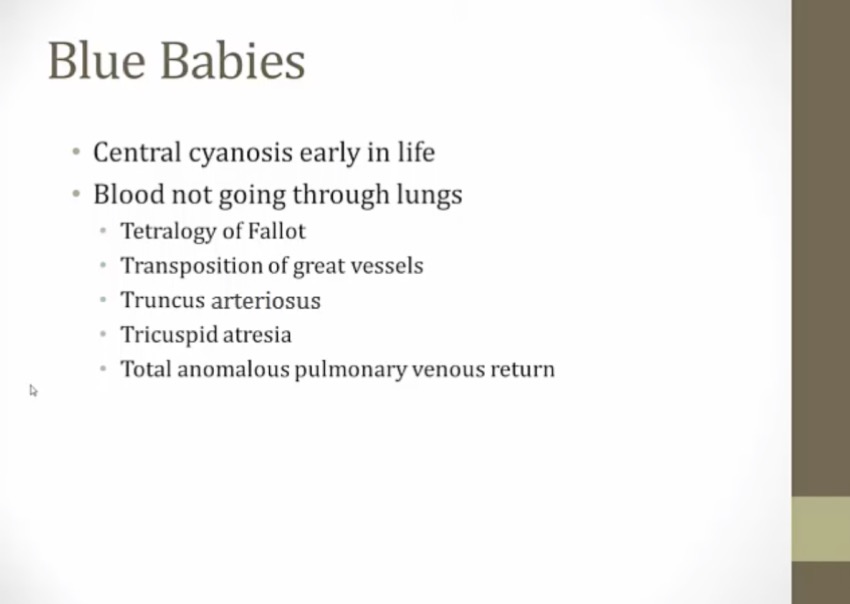
Tetralogy
Pathogenesis
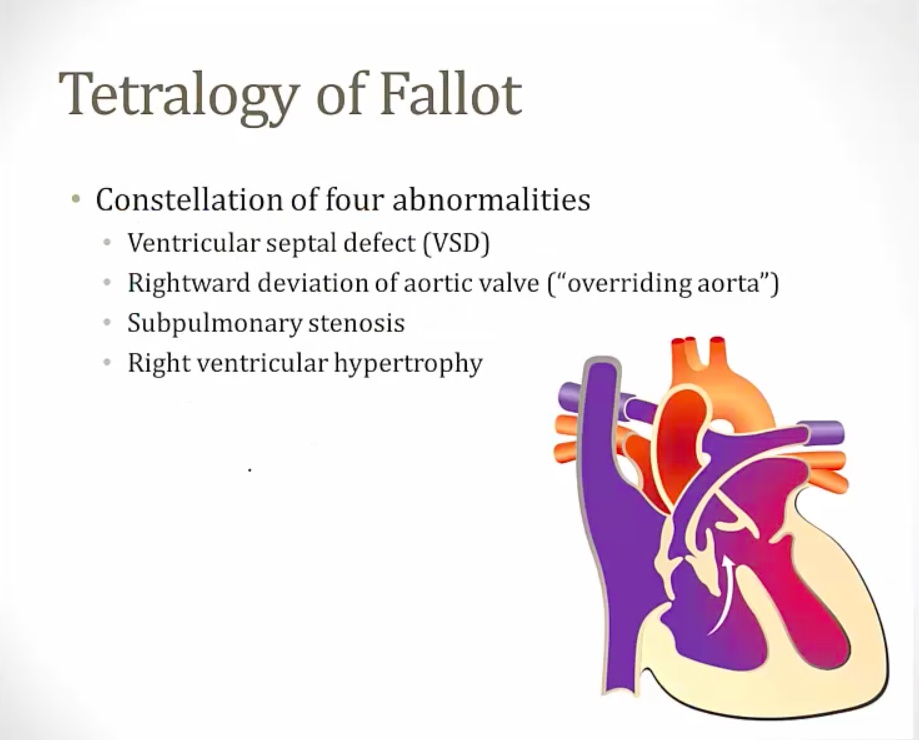
- pic: aorta shifted to right, override ventricular septum with VSD, thick RV walls, stenotic PV
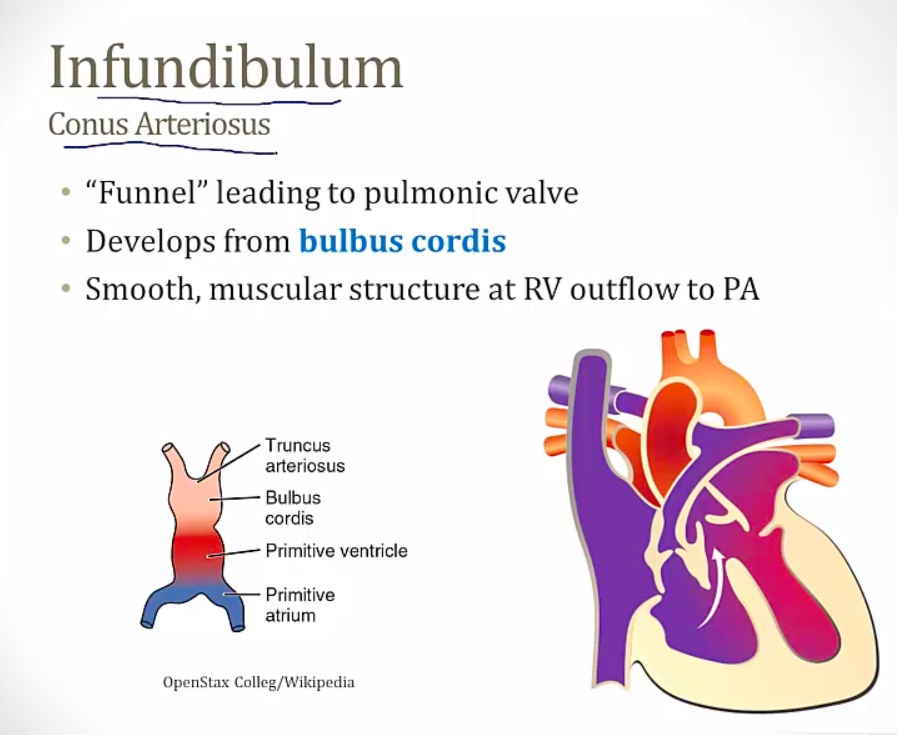
- all abnormalities caused by infundibulum/conus arteriosus “monology of fallot”
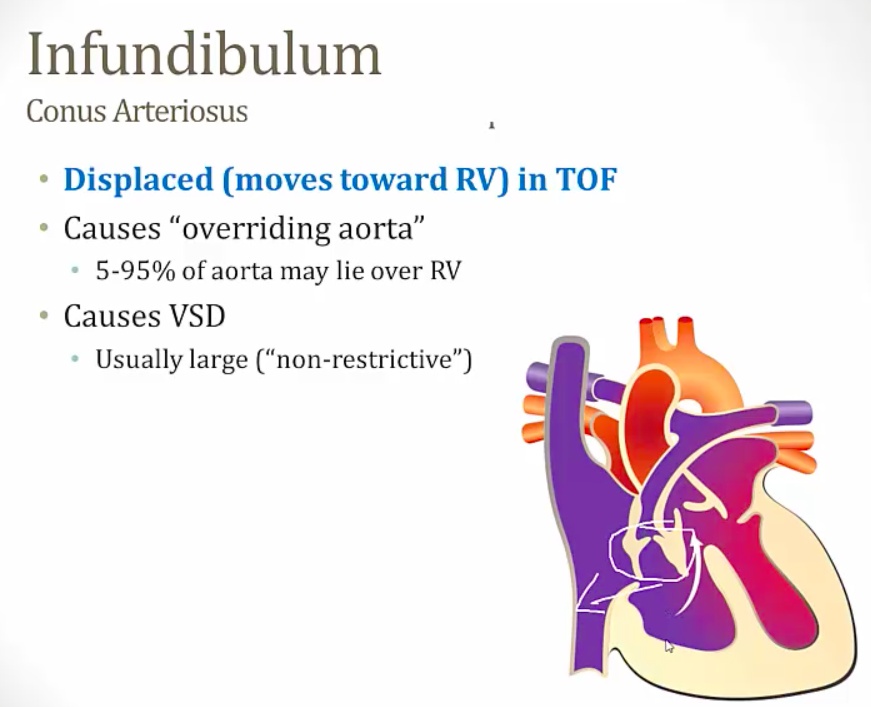
- pic: white infundibulum moving towards RV, dragging aorta with it to cause aorta to override RV, also creating VSD
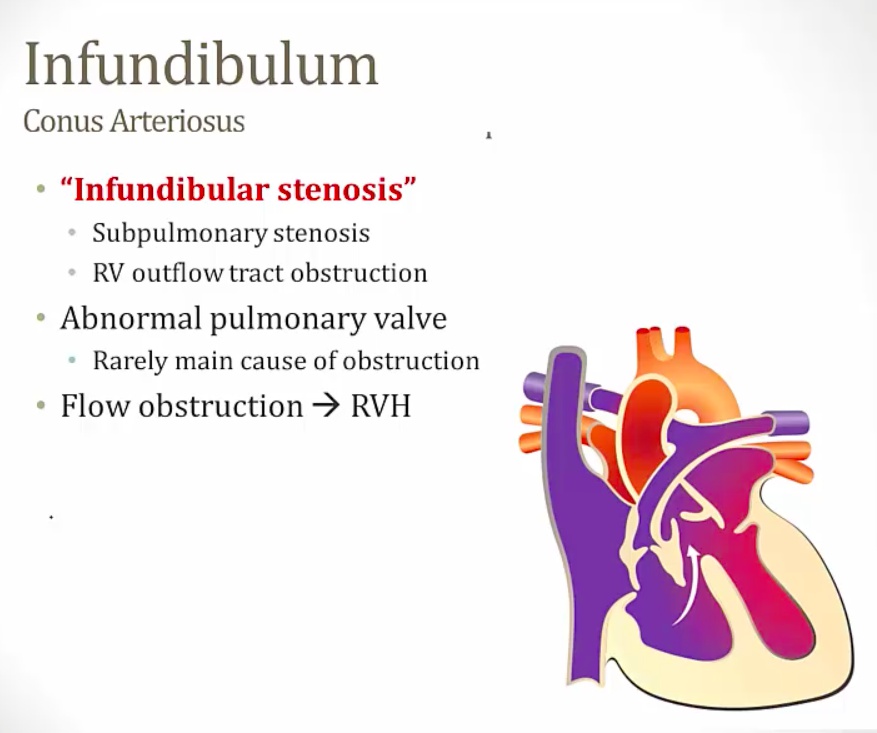
- restricts flow of pulmonary artery
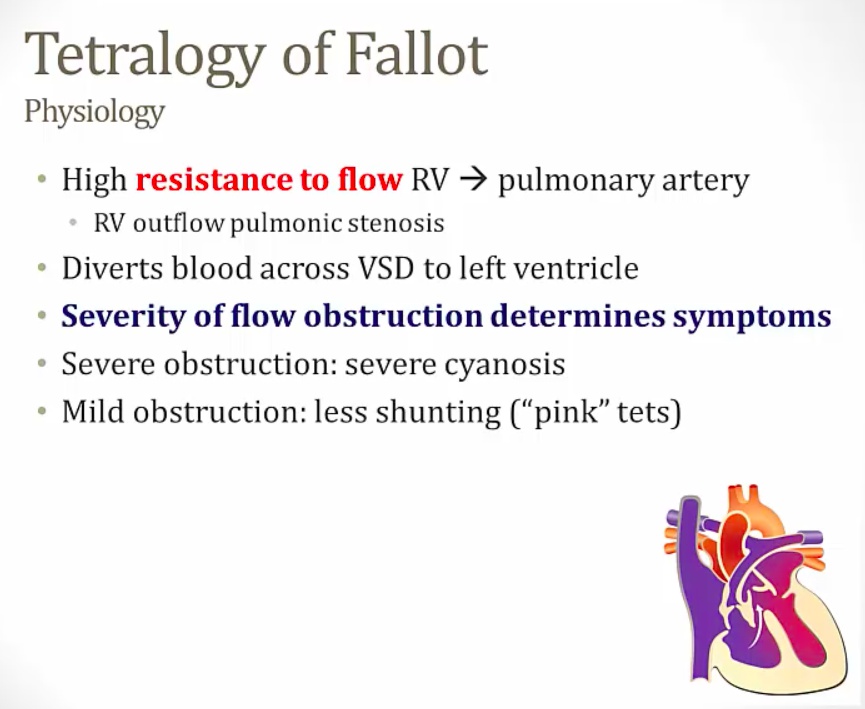
- deoxygenated blood diverted away from lung to LV and systemic circulation
- pink tets: mild obstruction, less cyanosis
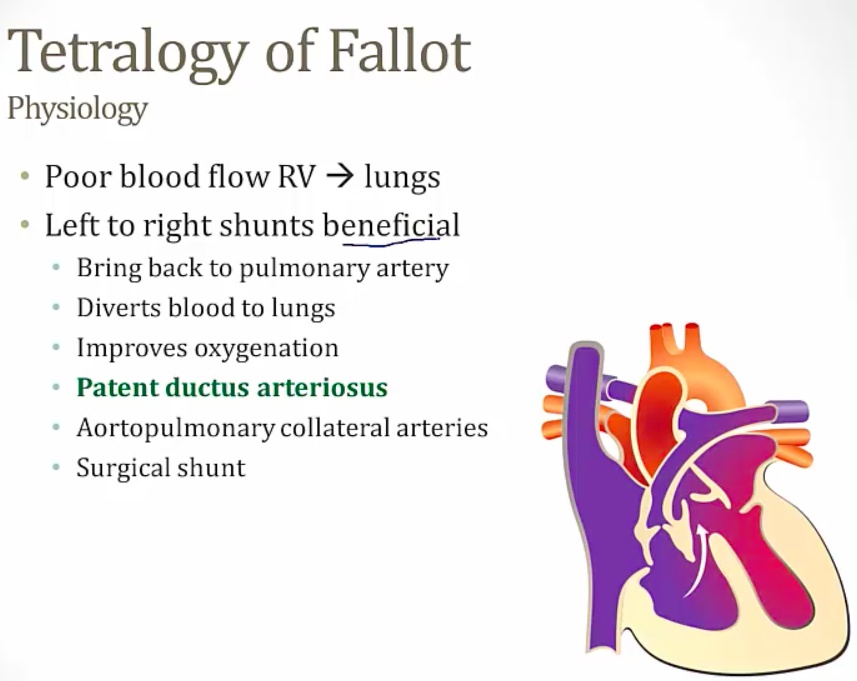
Symptoms
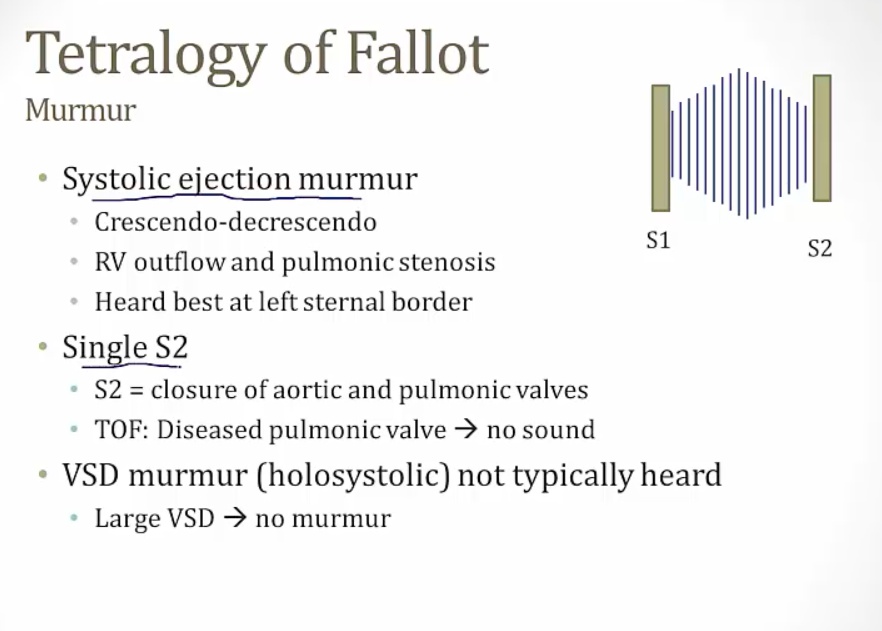
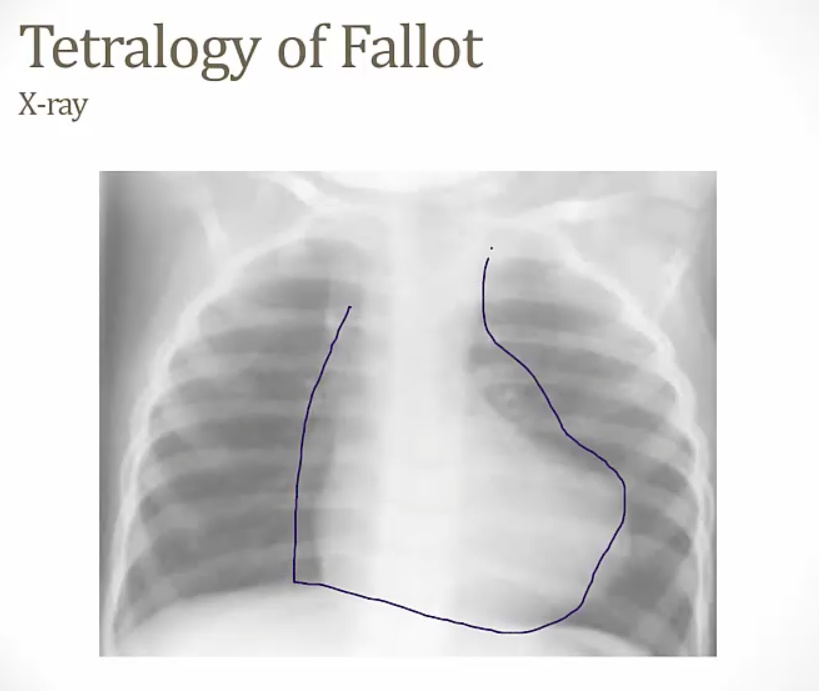
- boot shaped heart
- hypertrophic RV and apex misplaced
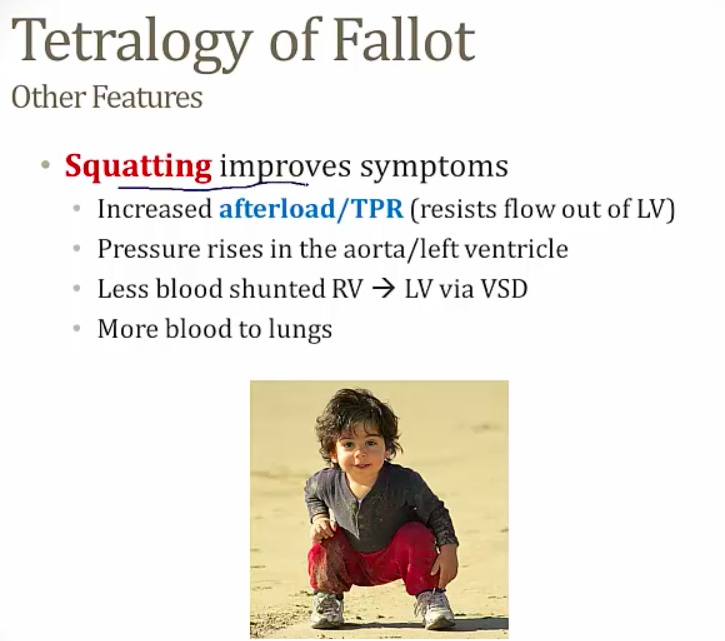
- knit femoral arteries when squatting
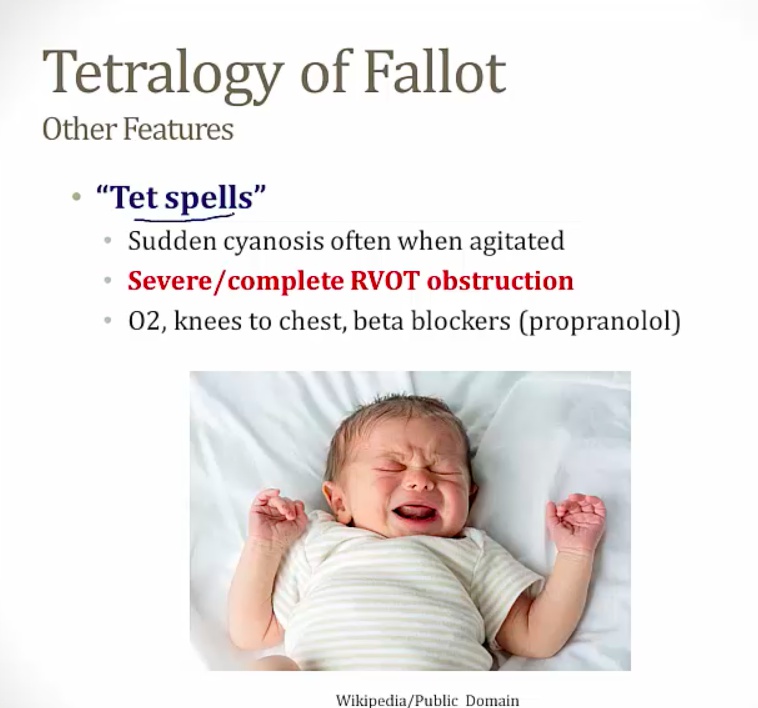
Truncus Arteriosus
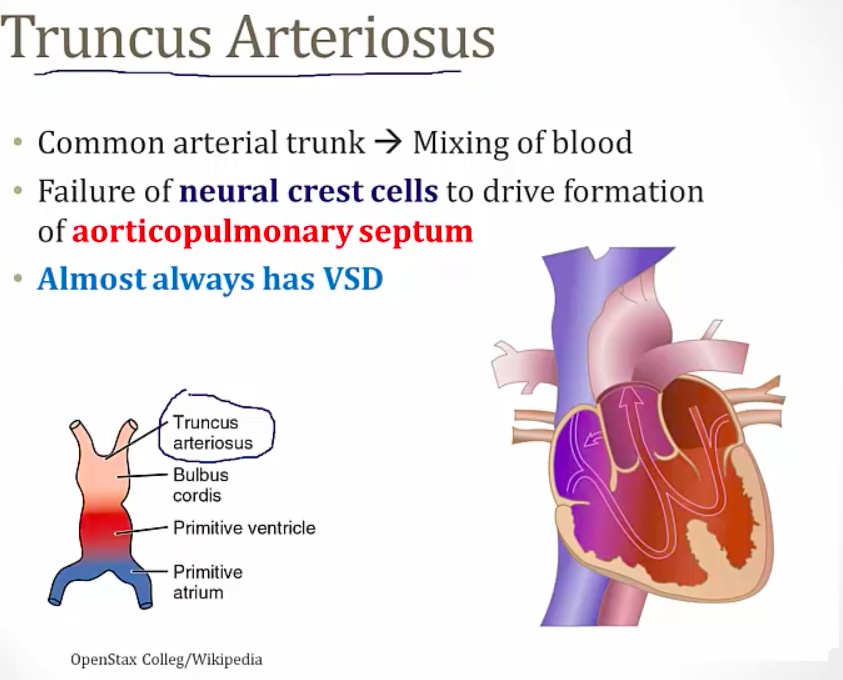
- normally truncus divides into aorta or PA
- persists = common trunk
- mixing of blood = cyanosis
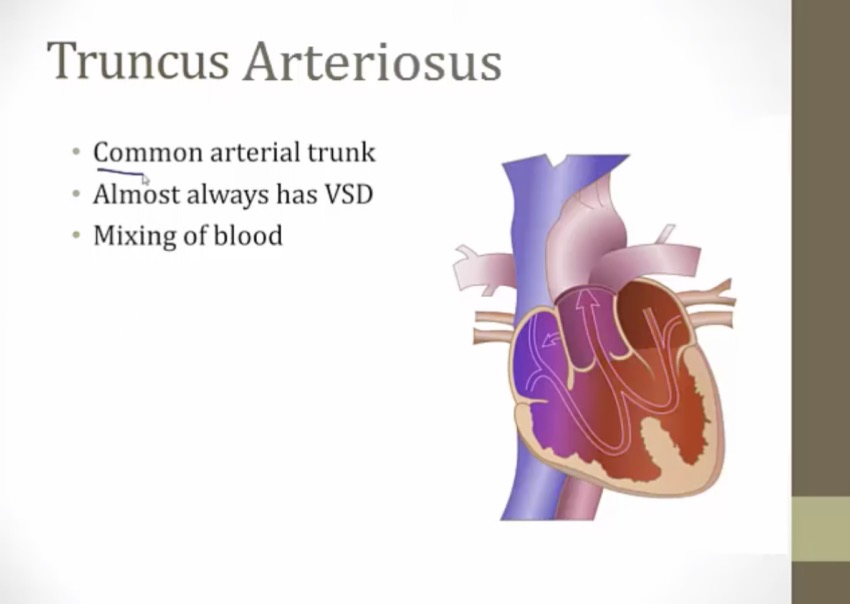
Transposition of great vessels
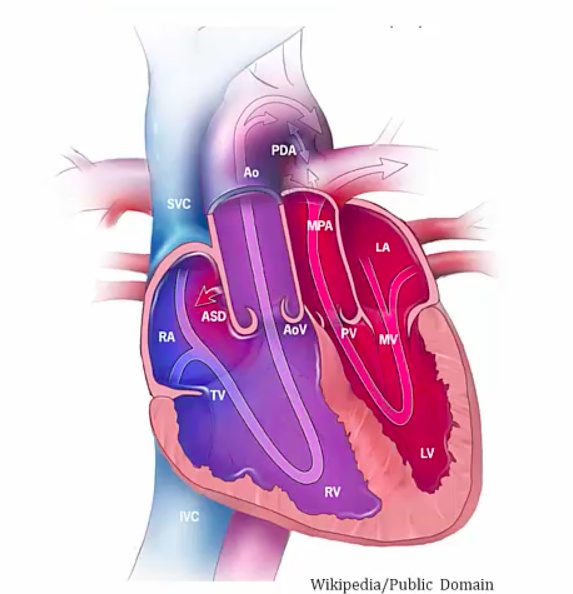
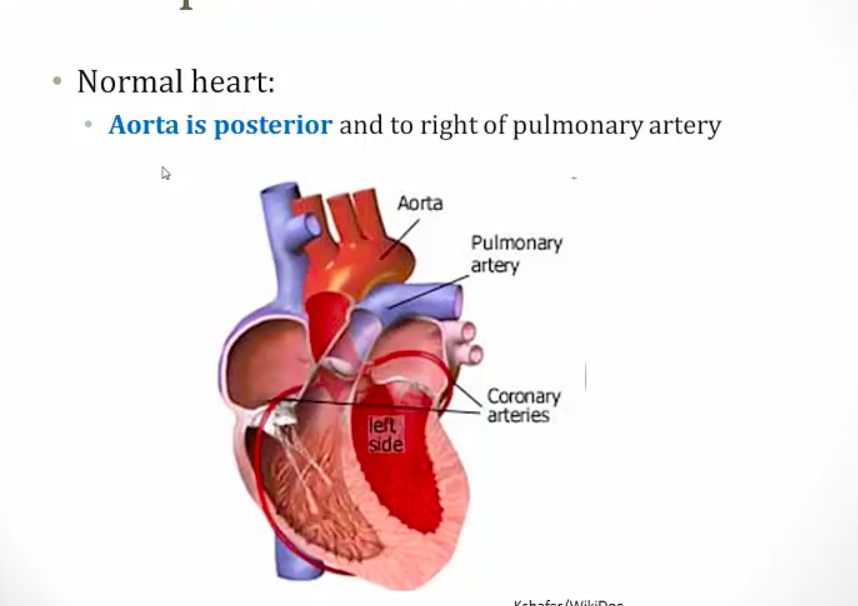
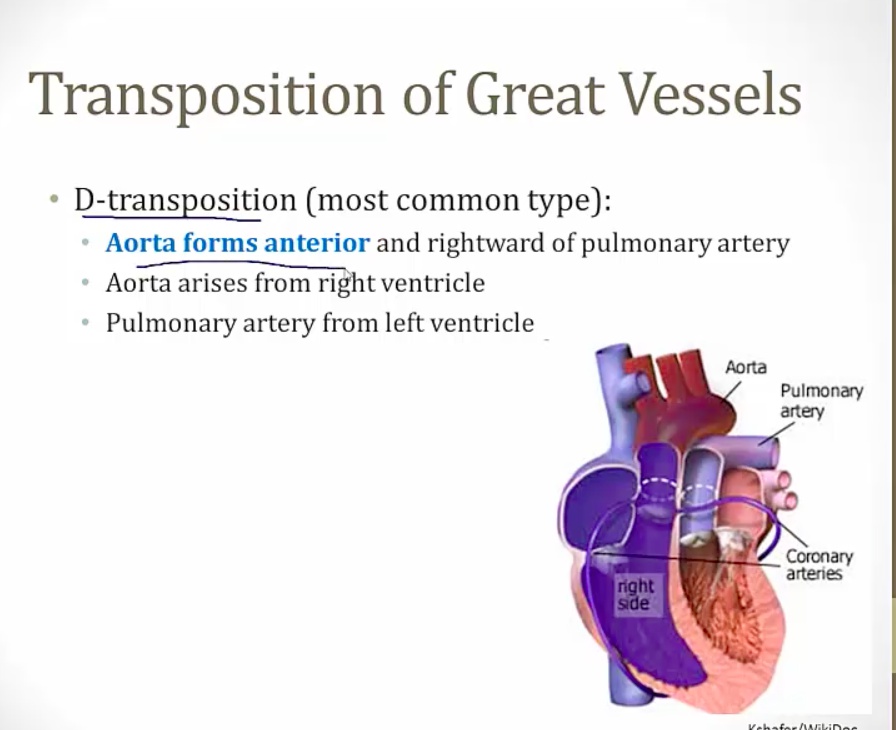
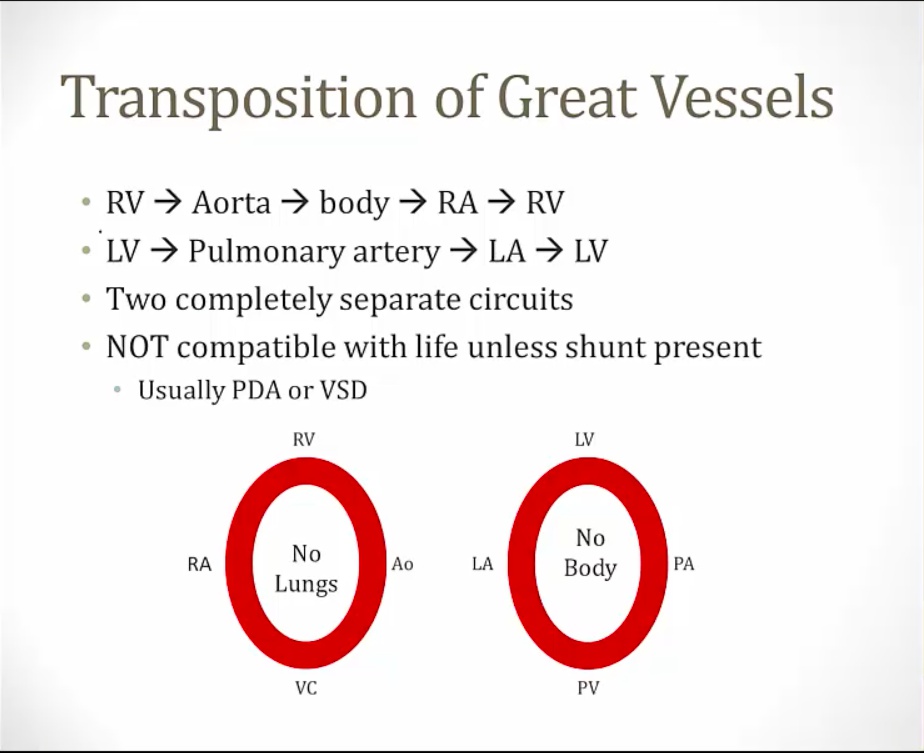
- D transposition
- VSD: allow RV/LV mix
- PDA: allow Ao PA mix
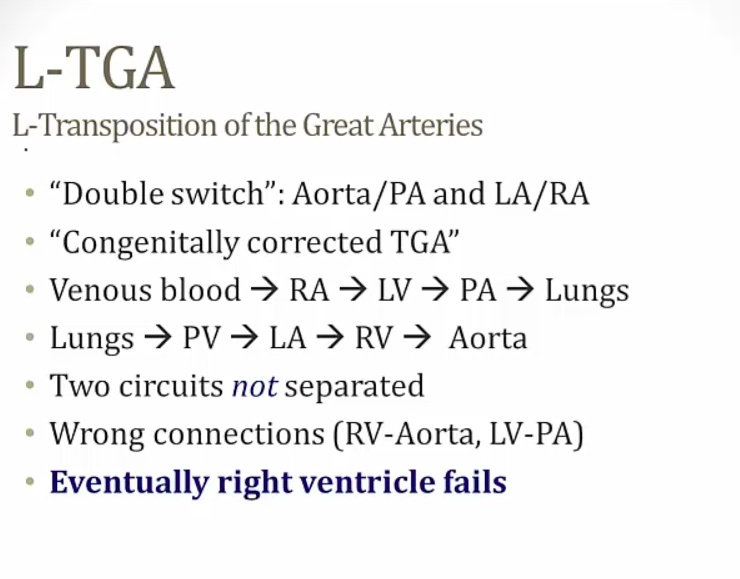
- rare variant
- RV fail from not being able to take aorta pressure
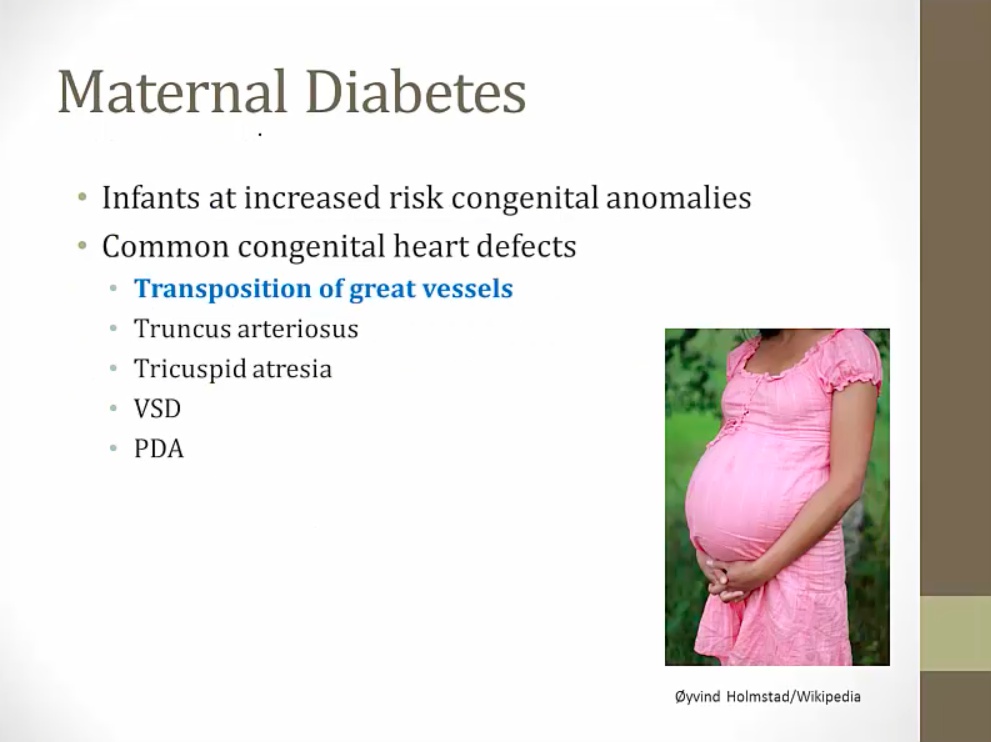
- transposition most common
Tricuspid Atresia
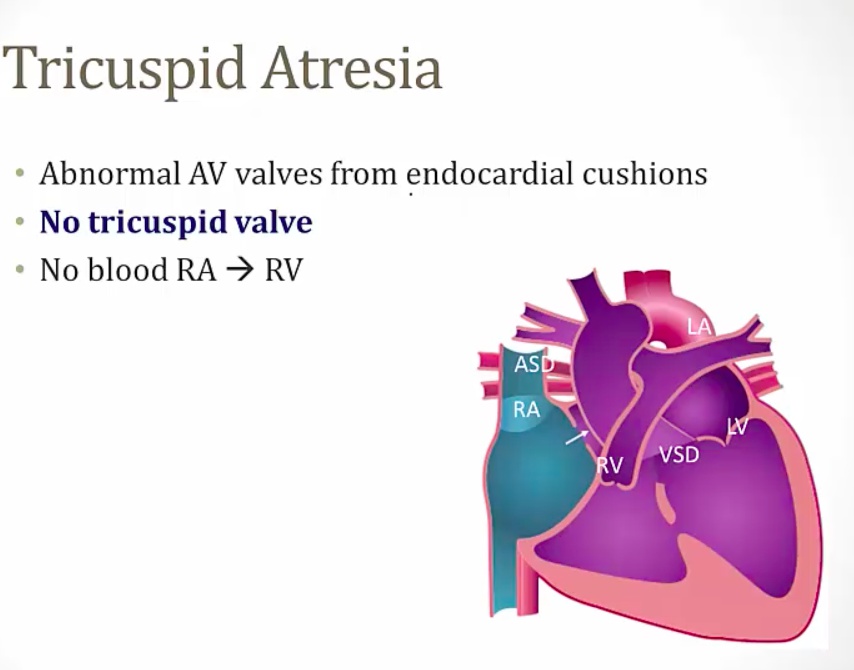
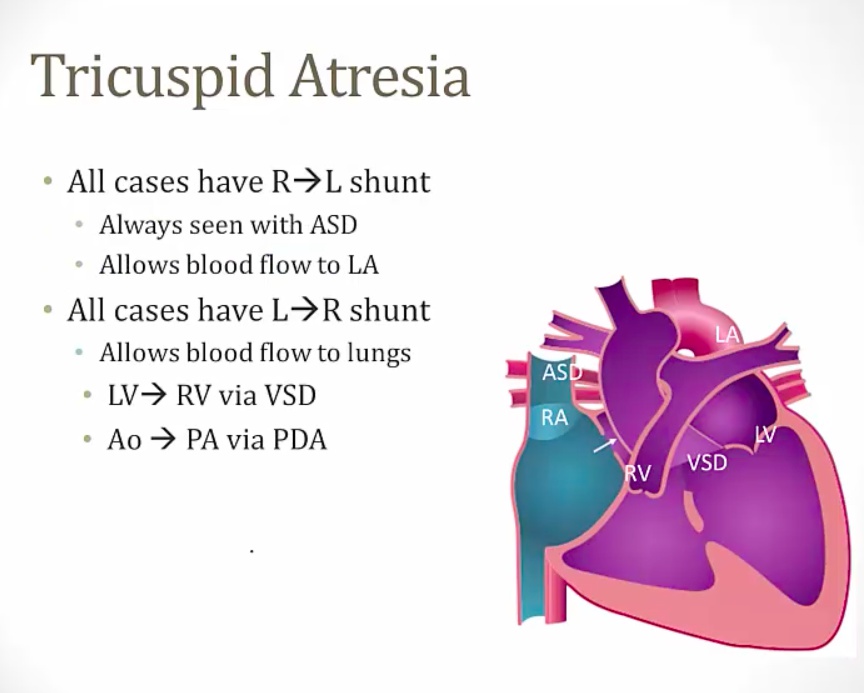
- only case to be compatible with life
- 2 shunts to allow blood flow
TAPVR
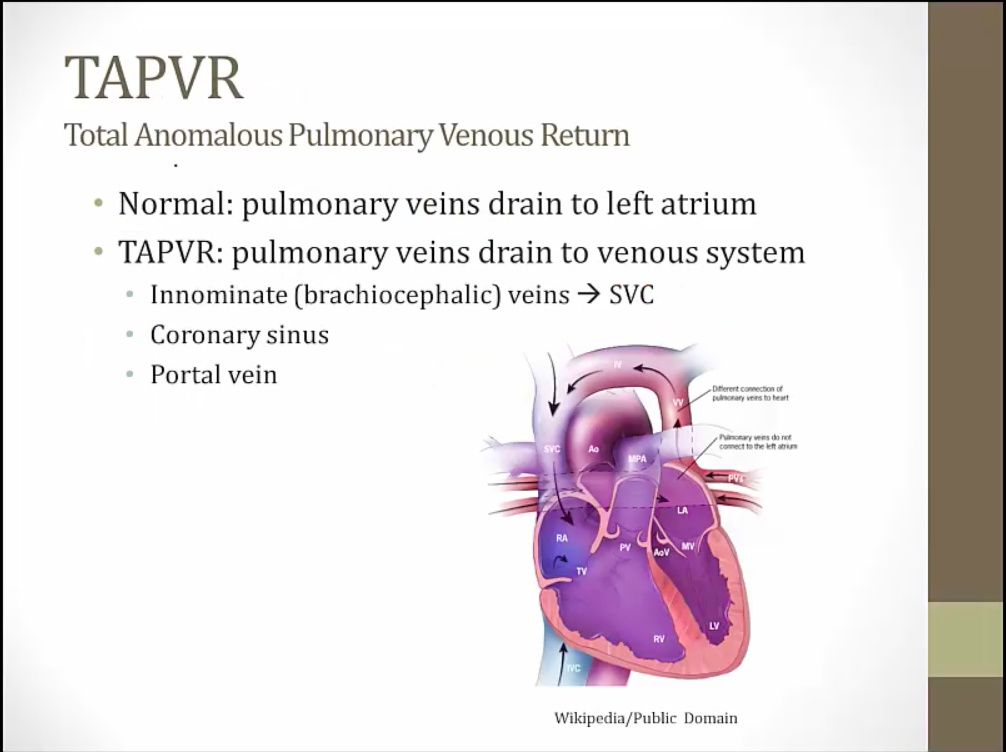
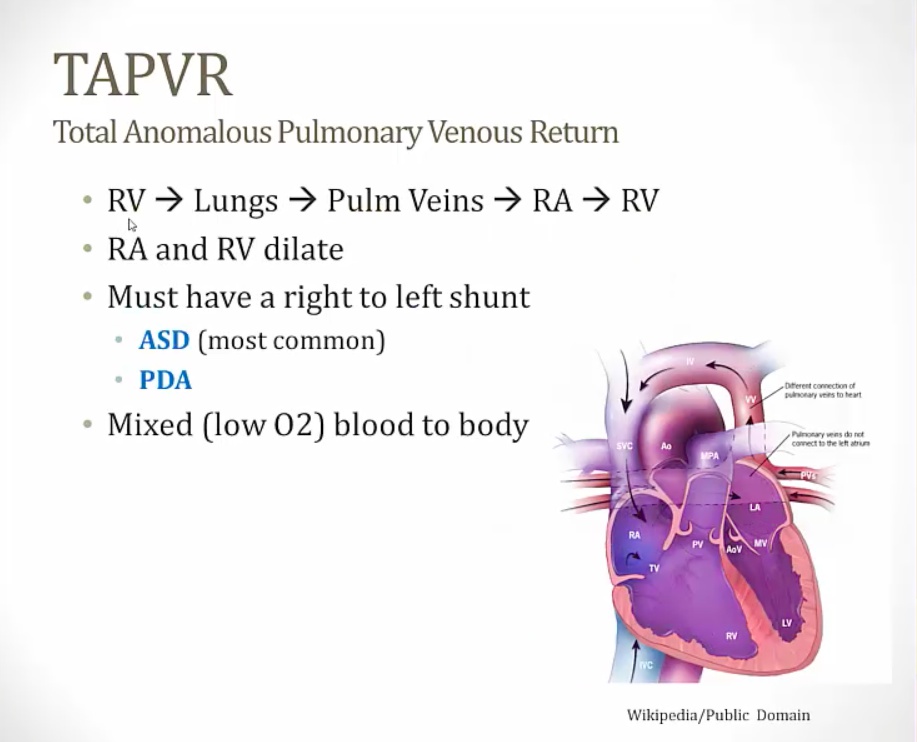
- mixed blood with low O2, cyanosis
Ebstein’s
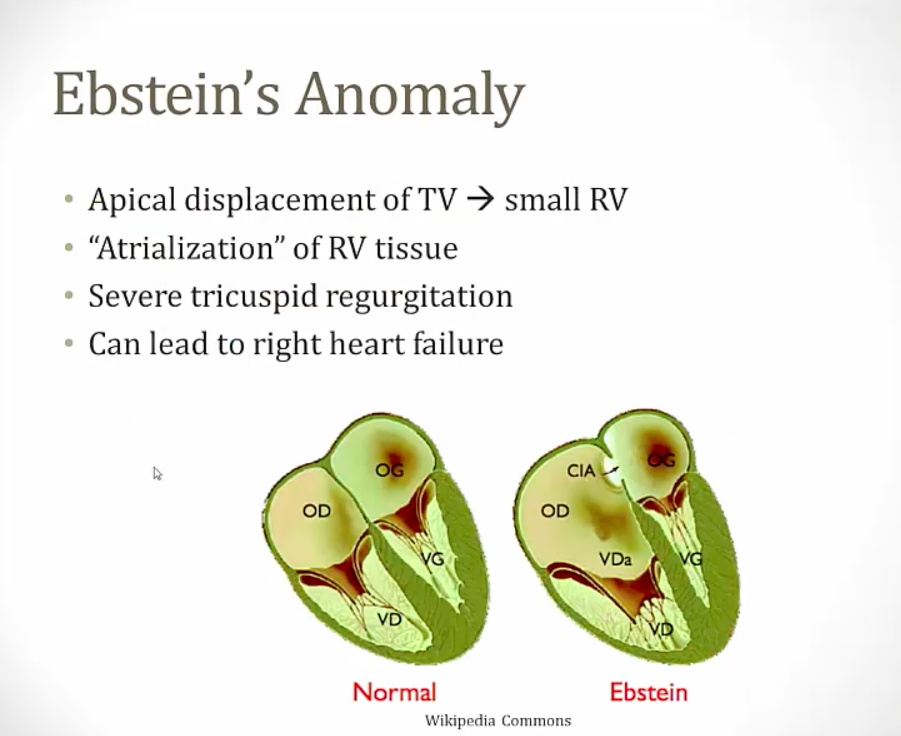
- cyanosis and HF from tricuspid regurge
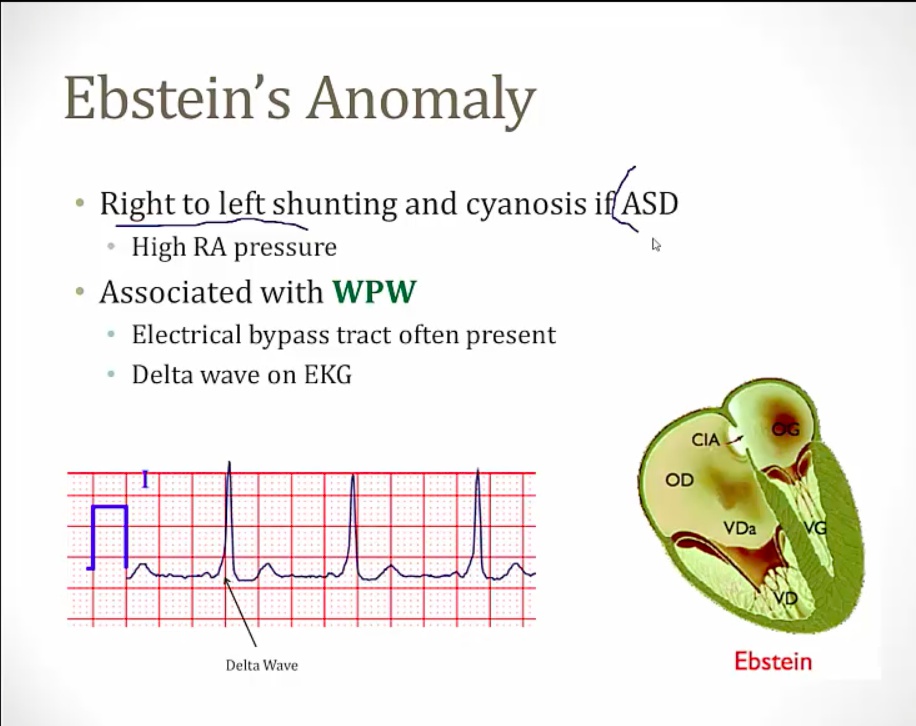
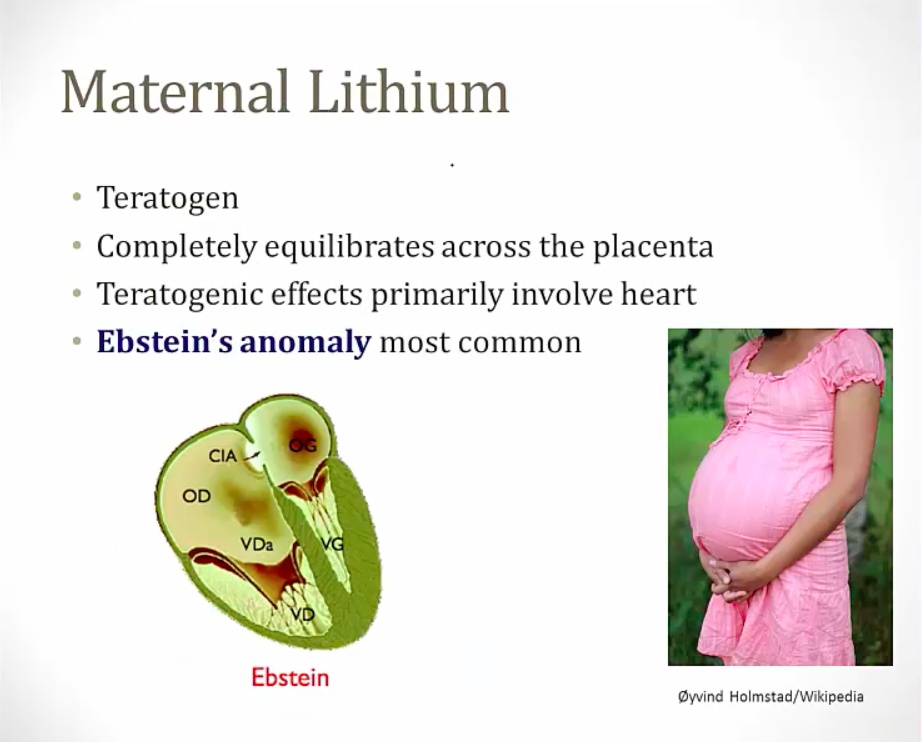
Pulmonary Atresia
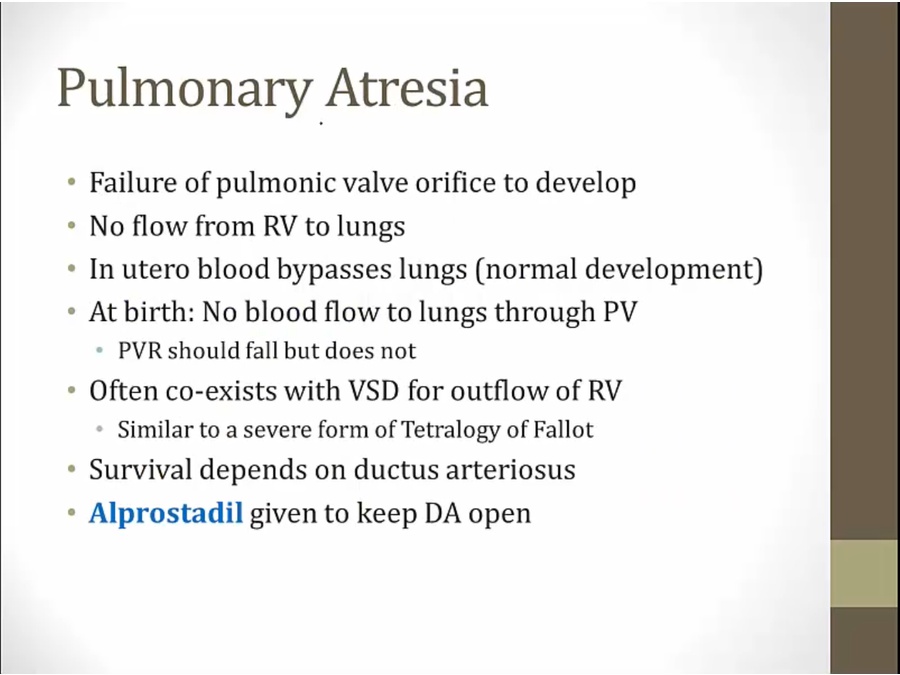
- in utero not a problem
- VSD: allows blood to exit ventricle
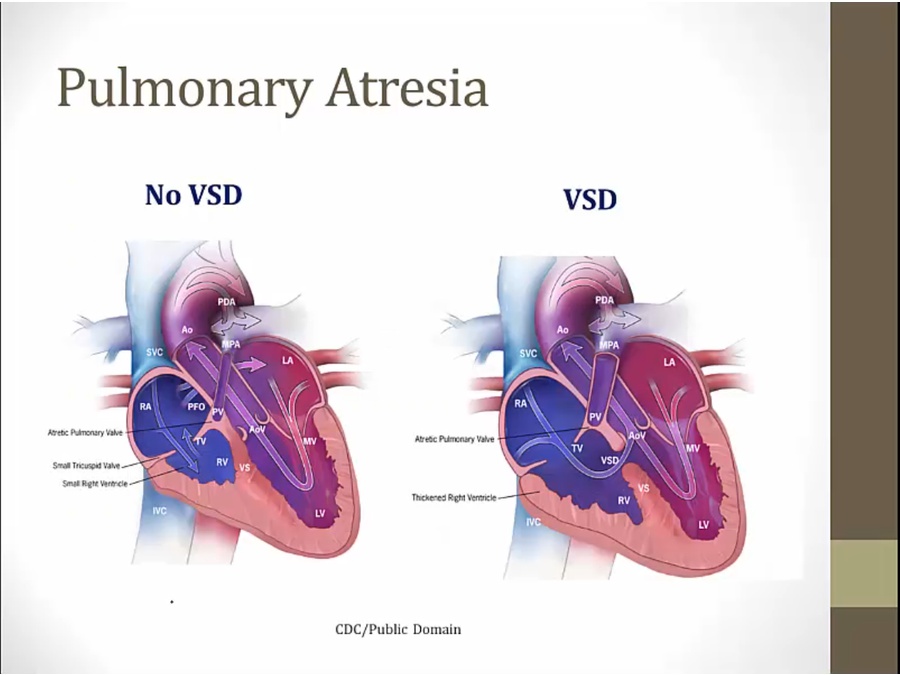
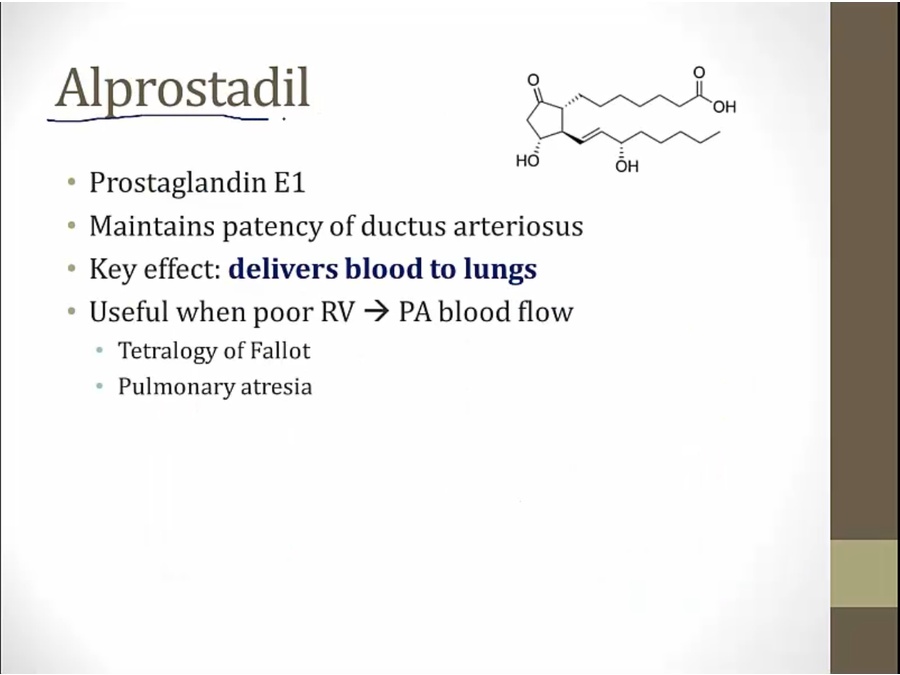
Conotruncal Heart Defect
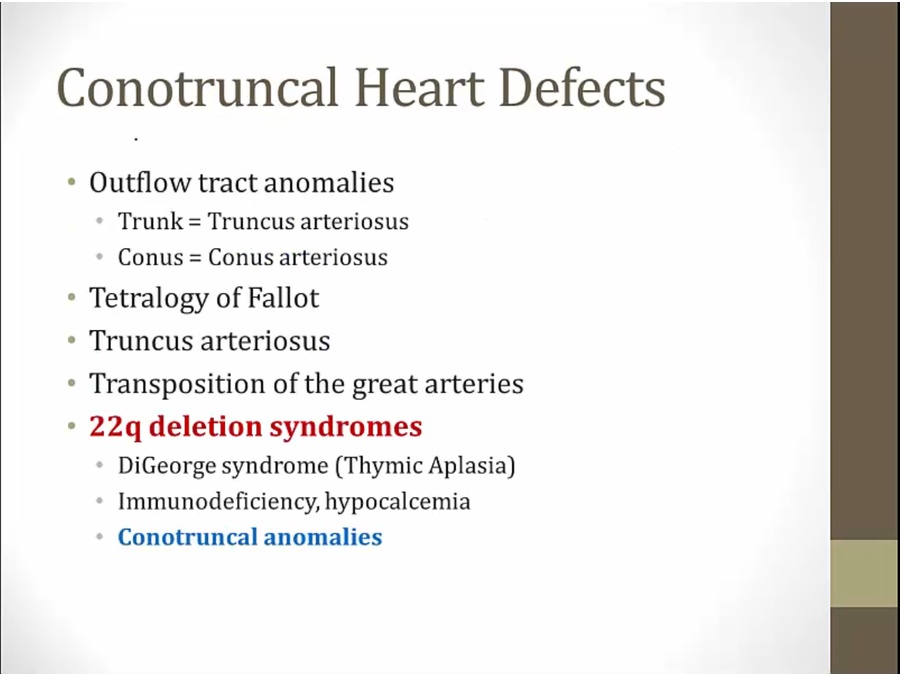
- arteriosus: form outflow of LV and RV
- classic: DiGeorge, develop any conotruncal problems
Coarctation
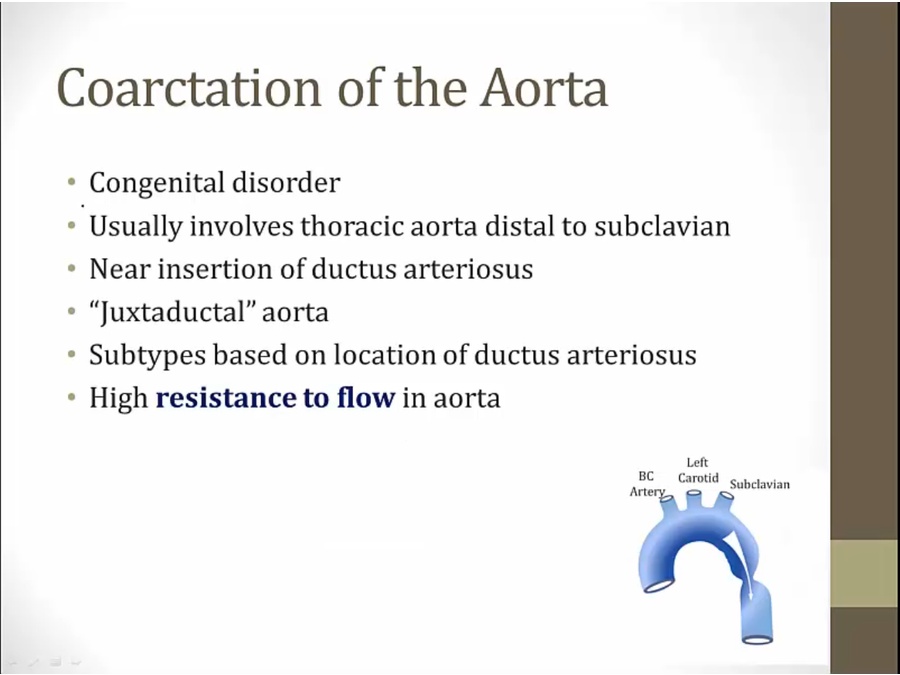
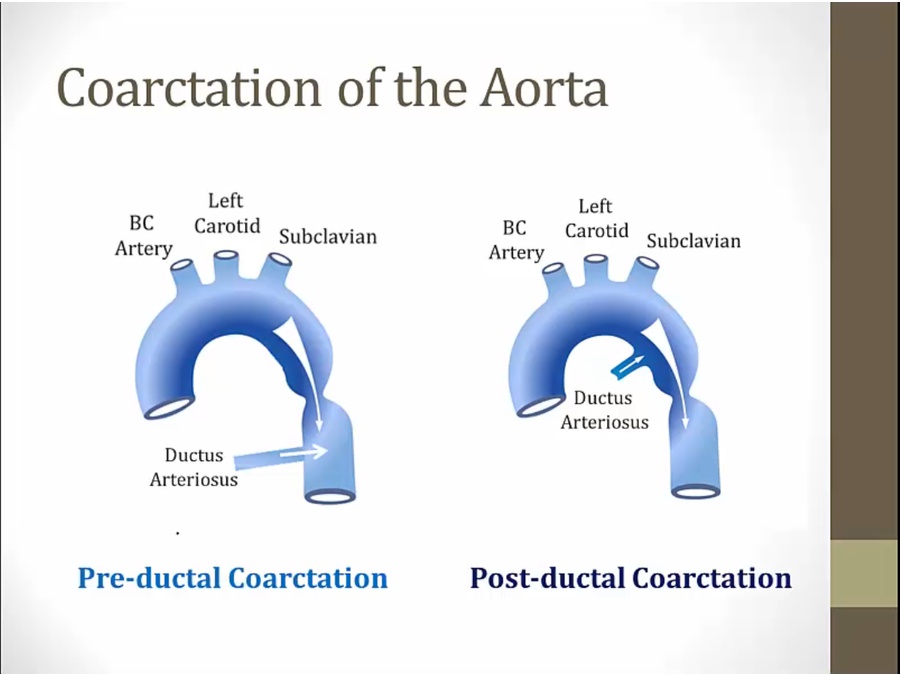
- preductal: before ductus arteriosus insertion
Preductal
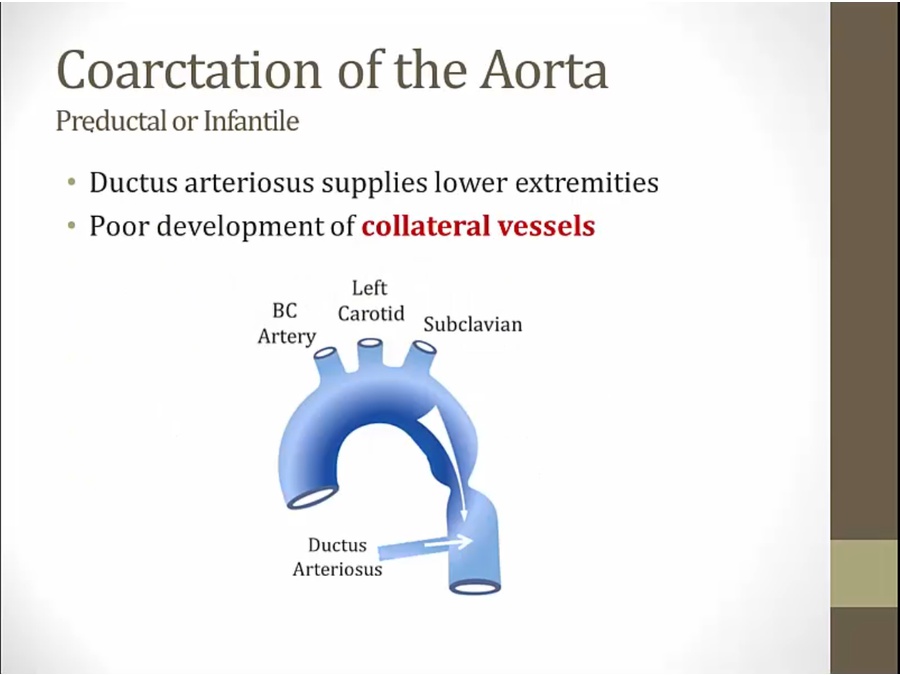
- DA supplying lower body = no need for collateral vessel development in womb
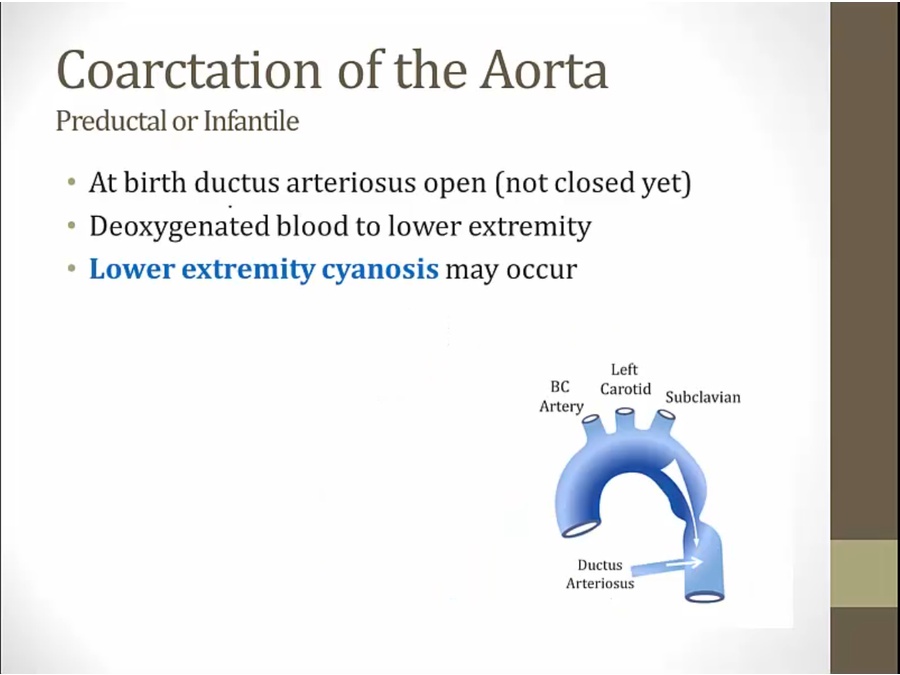
- cyanosis: blood bypass lung via DA and to lower extremities
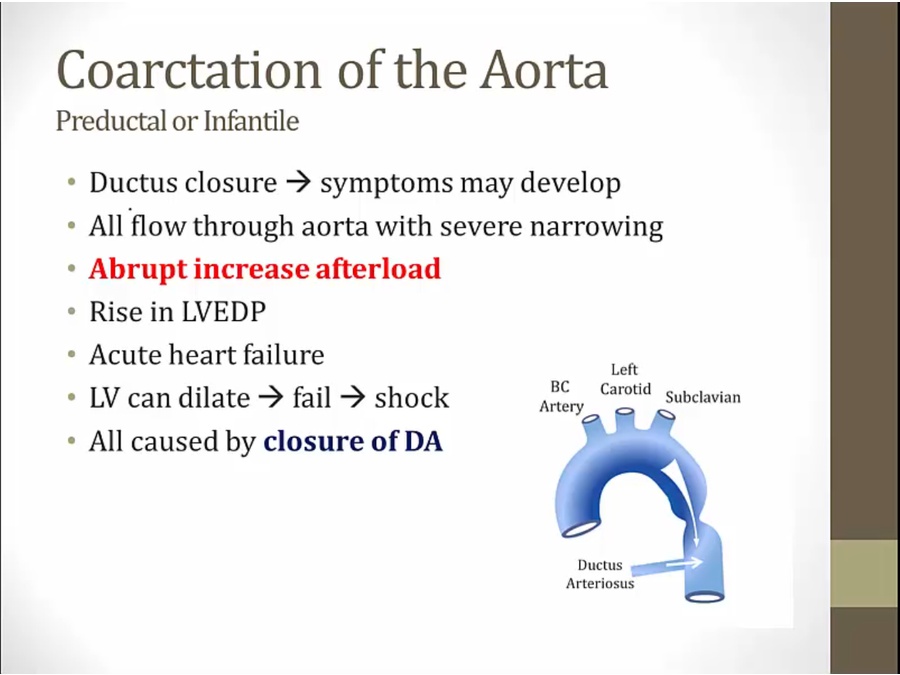
- all blood has to go through narrowing
- baby into heart failure/shock in day 2 of life
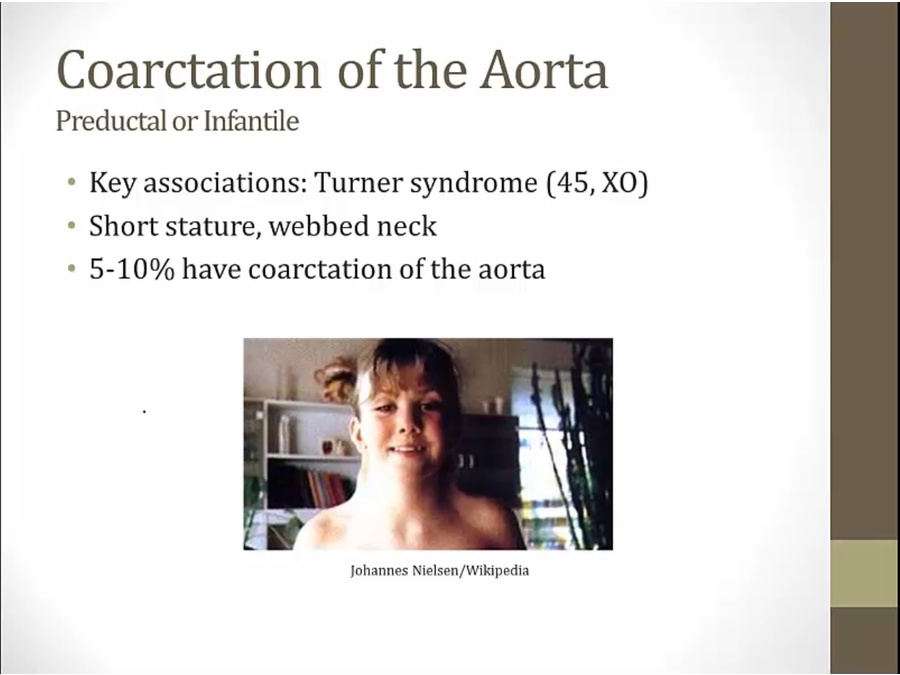
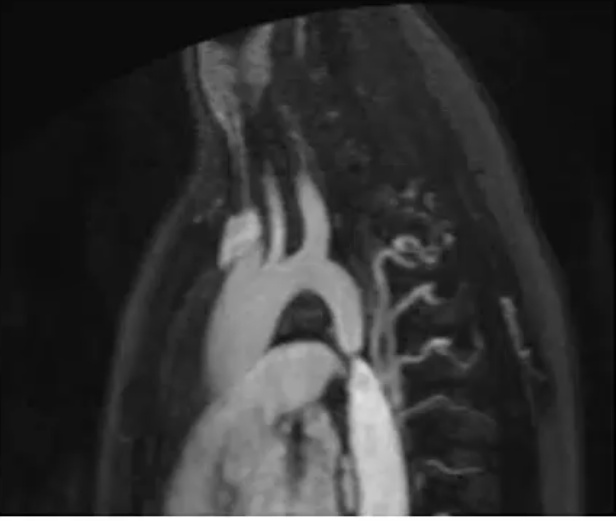
- narrowing of aorta usually in thoracic region
Postductal
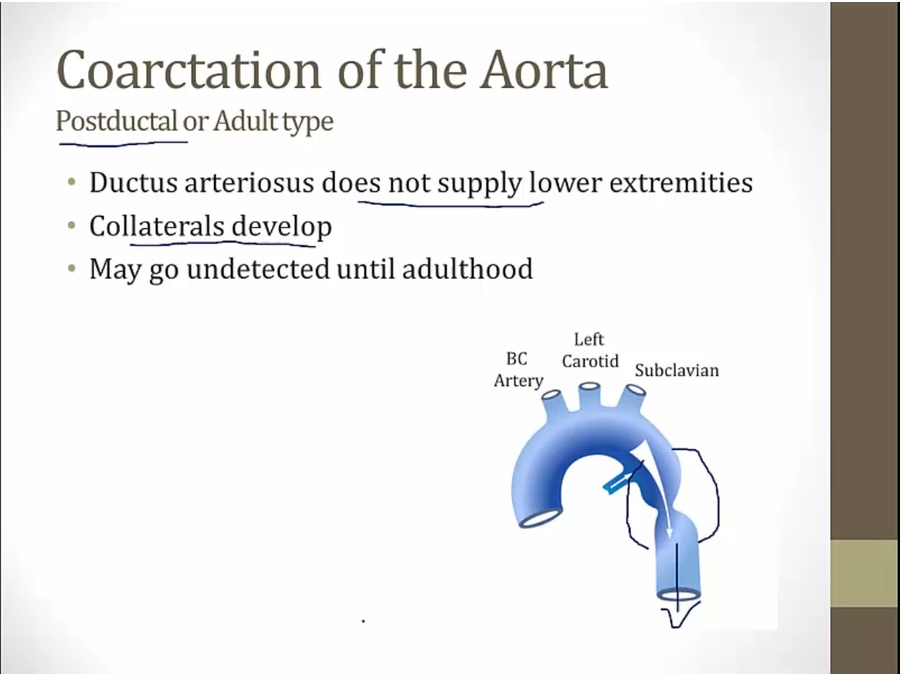
- good: no HF in babies
- bad: asymptomatic until adult
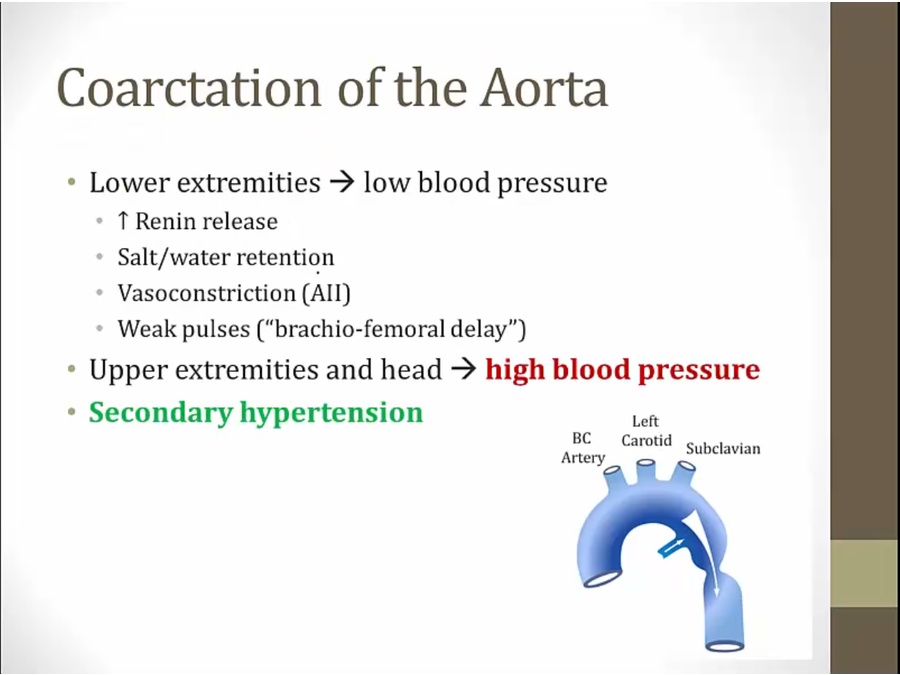
- delay between when feel brachial vs femoral pulse
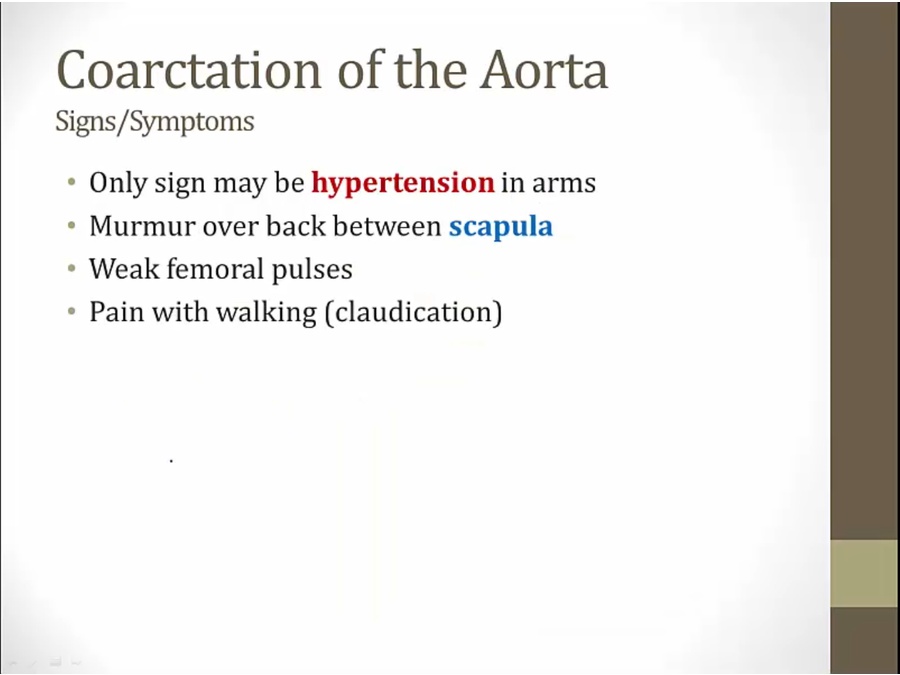
- young person with htn
- rarely, poor blood flow to lower body: pain/ischemia with walking
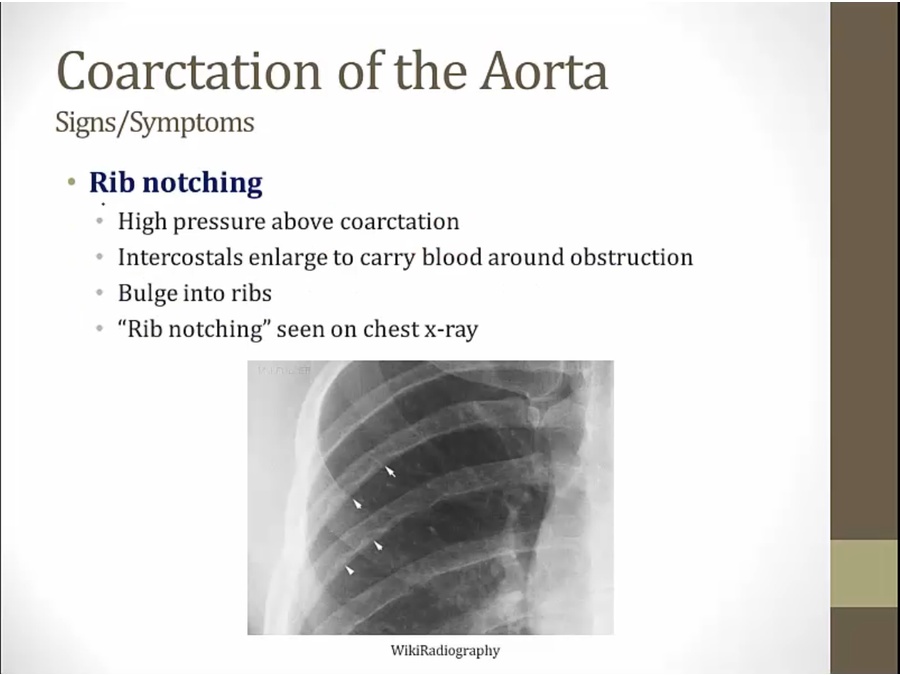
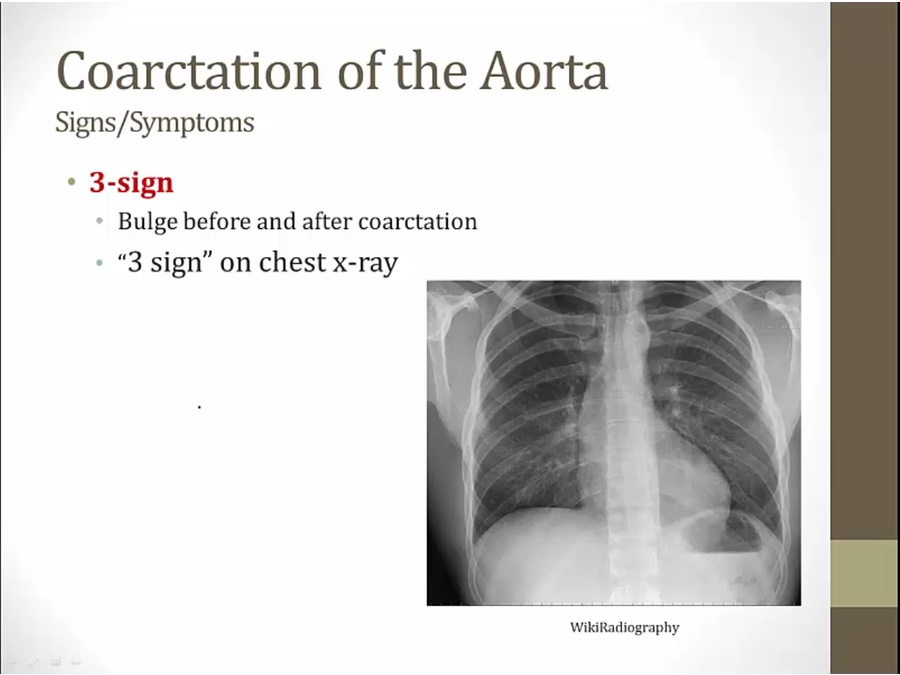
- xray: aortic knob and below
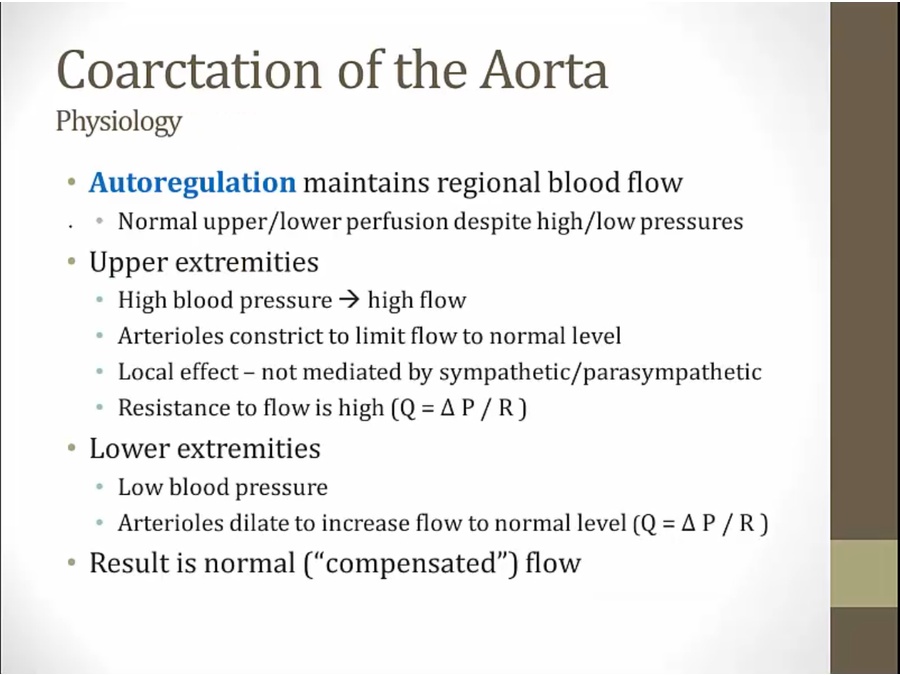
- not flushed in upper extremities or cyanotic in lower extremities because of autoregulation
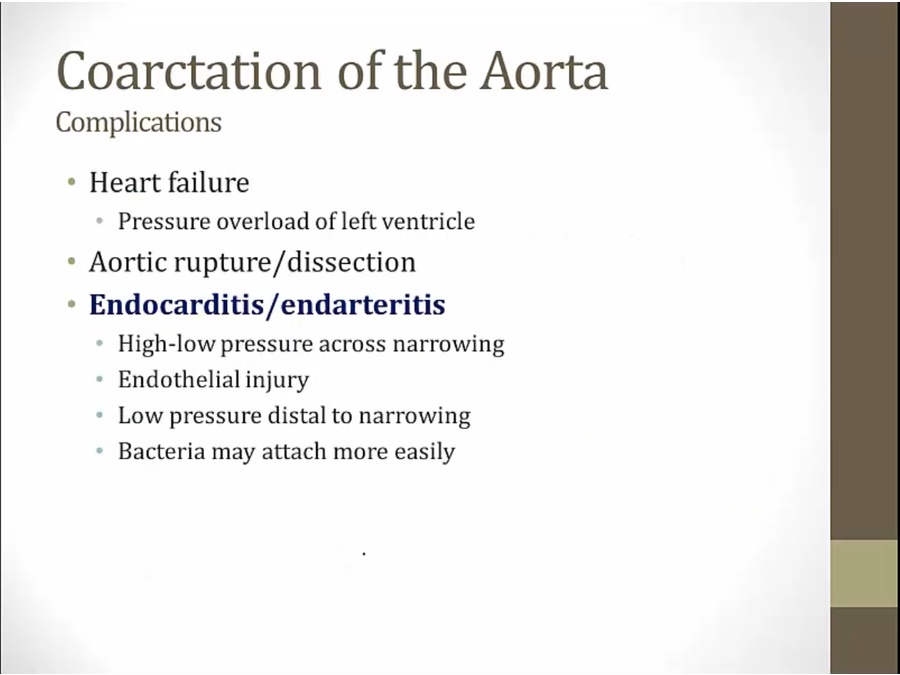
- endovascular infection: infection inside vascular tree
- endocarditis: heart valves
- endarteritis: artery
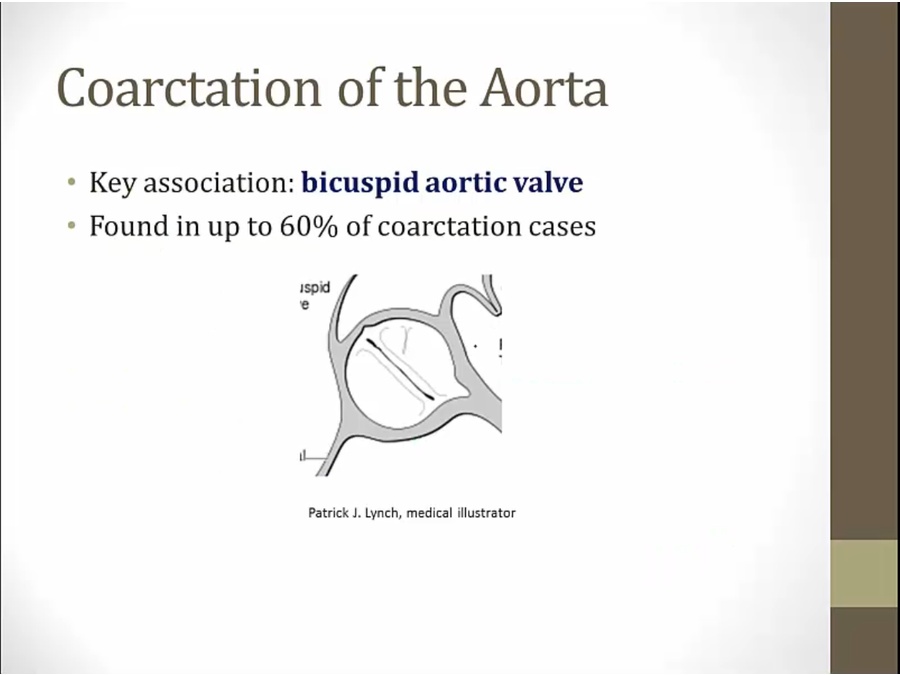
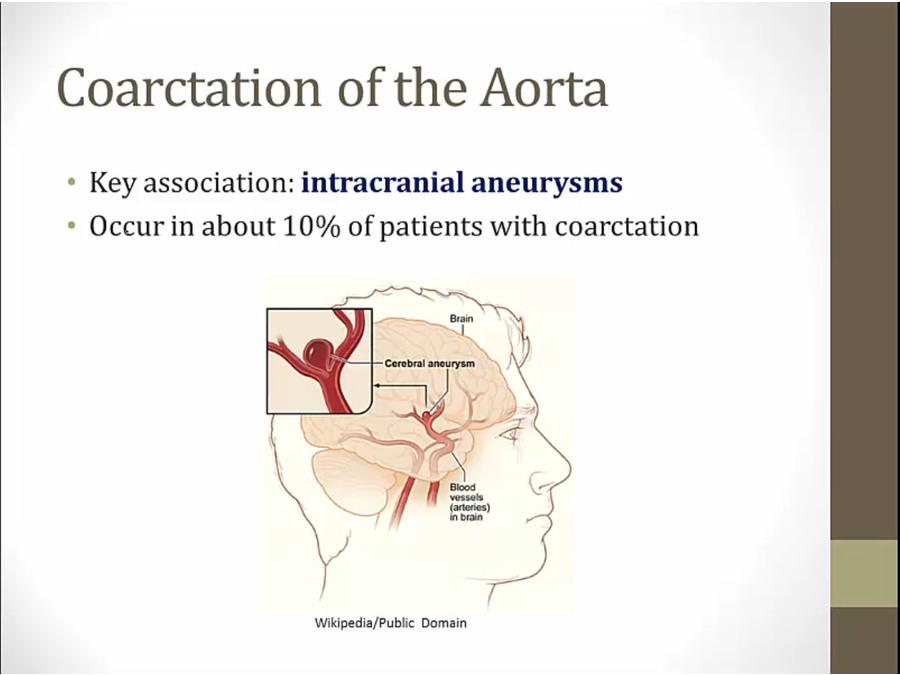
- coarctation part of a bigger problem of vasculature
Links to this note














































